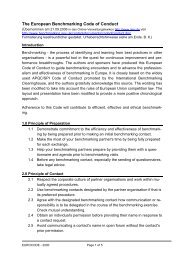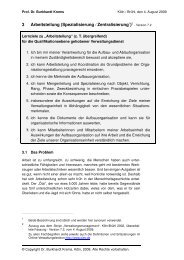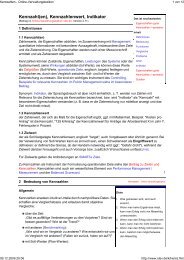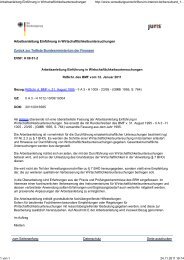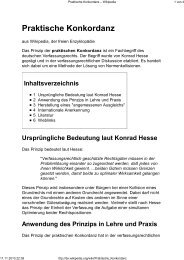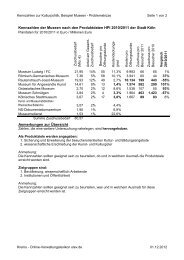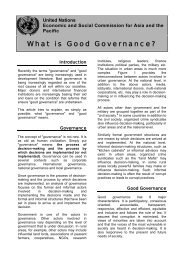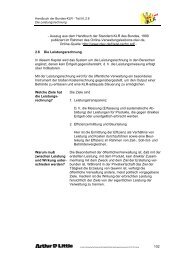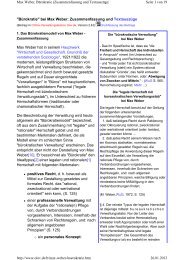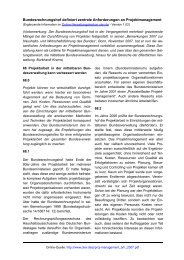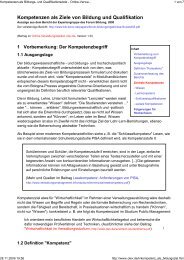Strategy Survival Guide
Strategy Survival Guide
Strategy Survival Guide
Create successful ePaper yourself
Turn your PDF publications into a flip-book with our unique Google optimized e-Paper software.
Useful Sources of International Comparative Data<br />
Reform Monitor. This site tries to keep up to date with different government reforms instituted in the areas<br />
of social policy (health care, pensions provision, family policy, state welfare), labour market policy and<br />
industrial relations. It is international in scope (15 OECD-countries: Australia, Austria, Canada, Denmark,<br />
Finland, France, Germany, Italy, Japan, Netherlands, Spain, Sweden, Switzerland, United Kingdom and<br />
United States of America). It doesn't seem to keep completely up to date (certainly not in relation to UK<br />
policy) but provides some useful descriptive comparisons of policies in OECD countries.<br />
Campbell Collaboration. Newly constituted international collaboration which aims to assess the actual<br />
effect of social and educational reforms more rigorously than has been done in the past. It is closely linked<br />
with its sister organisation, the Cochrane Collaboration, which aims to do the same assessment of "what<br />
works" for medical interventions.<br />
Economist Country Briefings. The Economist has made many of its country-specific articles and surveys<br />
available on its website. These can provide useful context and background material.<br />
Public Management OECD Country Information. The OECD maintains a country-by-country resource on<br />
developments in governance and public management.<br />
International Comparisons toolkit on the Policy Hub<br />
References<br />
Almost every <strong>Strategy</strong> Unit project has undertaken international comparisons and these are worth a look,<br />
often to be found as annexes in reports. For example, see the Adoption Review (July 2000) and the Ethnic<br />
Minorities in the Labour Market report (Feb 2002).<br />
There is a wealth of academic literature on comparative political science (focussing on the viability of making<br />
cross-national comparisons) and specifically on policy transfer ('exporting’ policies from one setting to<br />
another).<br />
Global Comparisons in Policy-Making: the view from the Centre, Geoff Mulgan, June 2003.<br />
Policy Hub International Resources section provides a range of guidance and resources including the<br />
CMPS International Comparisons Toolkit that includes several case studies and a directory of information<br />
sources.<br />
Learning from others - International comparisons<br />
In Practice 1: SU Workforce Development Project<br />
International comparisons for Workforce Development were undertaken a well-respected academic in the<br />
field. He had already done much comparative work and could therefore put together a report in a<br />
relatively short space of time.<br />
What we did:<br />
• specify a time frame for the work (in this case, about 6 weeks);<br />
• specify the countries we were interested in;<br />
• supplied articles, contacts, and data that the team had already collected;<br />
• organise a day in Paris, with the help of the British Embassy, to visit industry, union and<br />
Government representatives;<br />
What he did:<br />
• gave us an outline of themes to address;<br />
• advised on which countries would make interesting and relevant comparisons;<br />
• wrote a draft report and a subsequent final report to put on the internet;<br />
• presented findings at a seminar;<br />
• continued to be on hand to answer follow up questions from the team.<br />
Further information can be found in Annex 9 of the Workforce Development Report.<br />
<strong>Strategy</strong> <strong>Survival</strong> <strong>Guide</strong> – <strong>Strategy</strong> Skills<br />
Page 149



